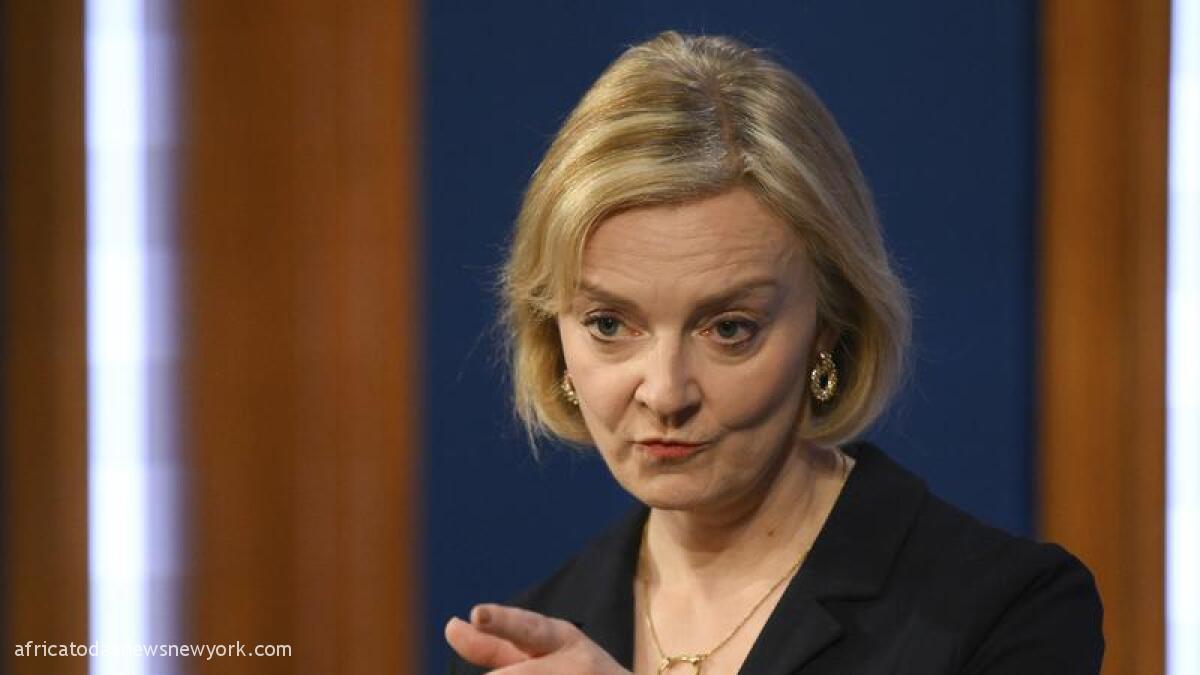British Prime Minister, Liz Truss is currently battling to salvage her position after market turmoil at her tax-slashing plans led to a series of largely humiliating U-turns that have now left her recently acquired job hanging in the balance.
The embattled leader who is just six weeks into her tenure held a meeting with senior ministers for their weekly cabinet on Tuesday, barely 48 hours after new chancellor of the exchequer Jeremy Hunt announced almost all her debt-fuelled tax cuts would be reversed.
Truss had reiterated her government ‘had gone too far and too fast’ in its mini-budget unveiled last month, her office disclosed, as she bids to stabilise weeks of economic and political tumult sparked by the package.
Africa Today News, New York reports that Hunt, who replaced her sacked ally Kwasi Kwarteng last Friday, urged ministers ‘to look at finding ways to save taxpayers’ money,’ ahead of detailing the government’s revised medium-term fiscal plans on Halloween.
‘The cabinet are fully supportive of the prime minister and it was an effective and in-depth discussion,’ Truss’s spokesman told reporters, denying there were any calls for the embattled premier to resign.
Read Also: King Charles III Snubs COP27 After Truss’ Objection
But even Conservative MPs are publicly joining opposition lawmakers in declaring her position untenable, with the 47-year-old’s credibility seemingly in tatters.
Less than two months after electing her Tory leader, a new YouGov poll of the party’s membership found a stunning reversal in her fortunes, with a majority now saying she should go.
The pollster also found she was the most unpopular leader it has ever tracked, scoring a net favourability of -70.
“Unprecedented unpopularity,” tweeted YouGov’s Patrick English.
Truss had already staged two embarrassing U-turns, scrapping tax cuts for the richest earners and on company profits, before then firing close friend Kwarteng.
Also. on Monday, his replacement Hunt announced that not only would the remaining tax curbs be reversed, but a previously two-year cap on consumer energy bills would now be limited to six months.

